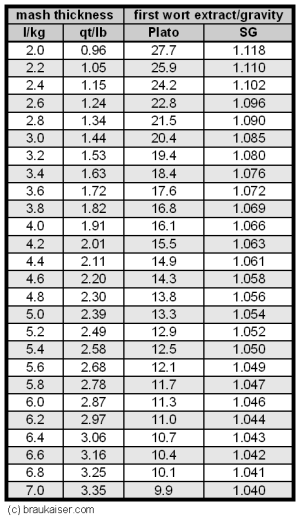Whats the secret? And how do you calculate conversion? Everything soluble converts so the iodine test seems to me to be slightly misleading. And, do you find any qualitative differences between the beers? Assuming you can hit similar OG/FG with the two processes.
I don't think there's a magic secret to getting full conversion. The biggest factor is crush, but a warm alpha rest and a thinner mash can push that last reluctant 10% or so to convert or help make up for a less than optimal crush.
The calculation for conversion efficiency is a little bit of a pain, because of the volume contribution from the sugar. The easiest way is to use Kai's chart that shows the gravity of the first runnings for a given mash thickness at 100% conversion:

I find the iodine test to be just this side of useless. It certainly won't tell you if you have complete conversion.
As far as qualitative differences, I do get different OGs, of course, but I guess that's quantitative. Other than that, I've been using No-Sparge for Lagers and British Ales, and I get a nice malty but soft malt profile, which is why I chose to use that technique, but I've never made the same recipe both ways to make the comparison. I don't expect there's a huge difference in flavor, though. More than anything else, it's just a little easier and a little faster than bothering to sparge and, at 75%, it only costs 1 # of extra grain for 5 gallons of a 12°p beer.